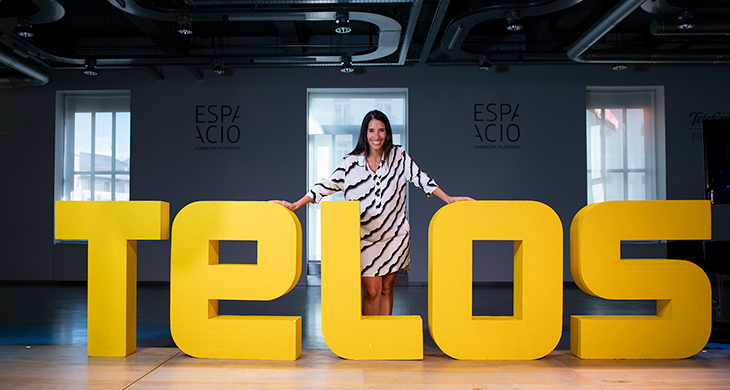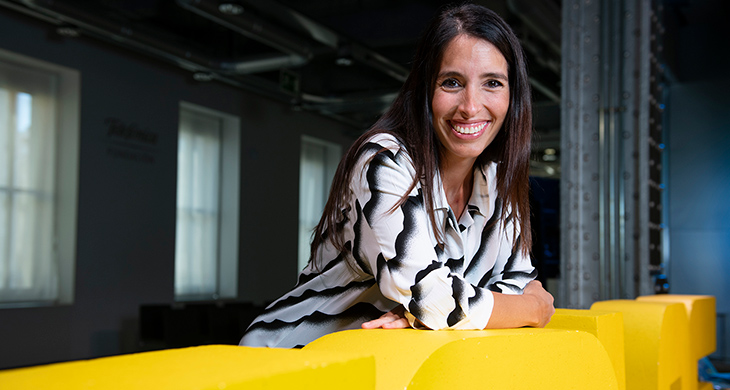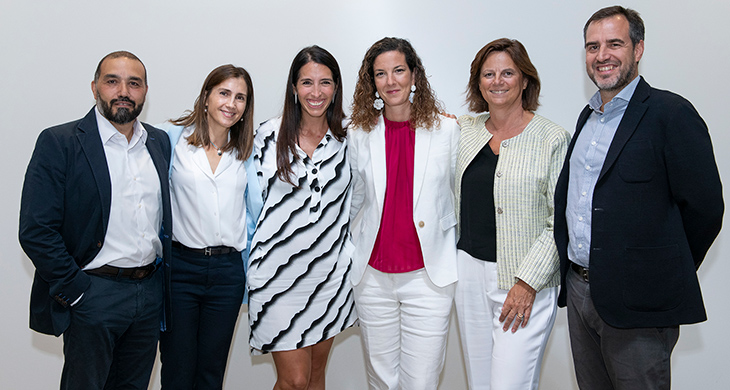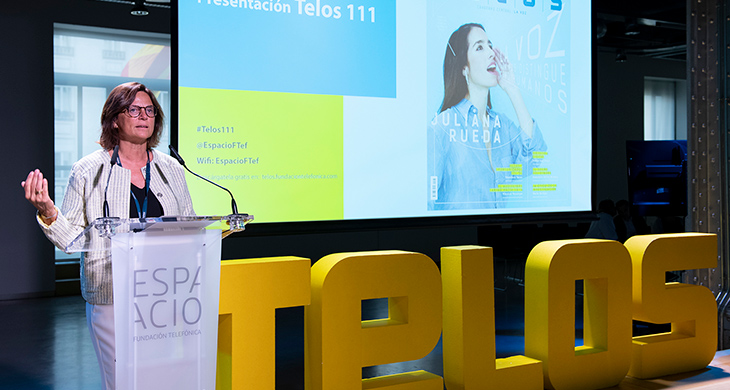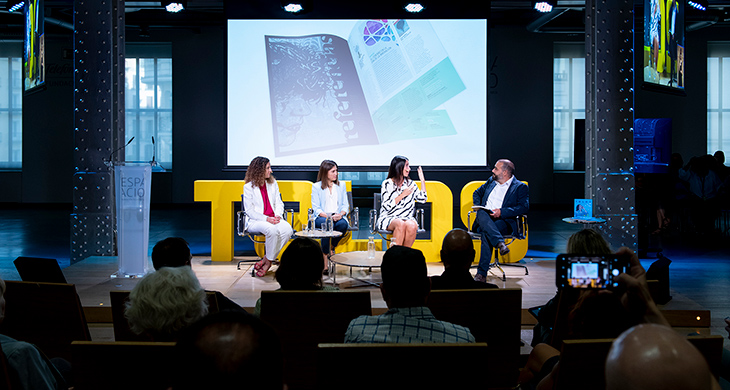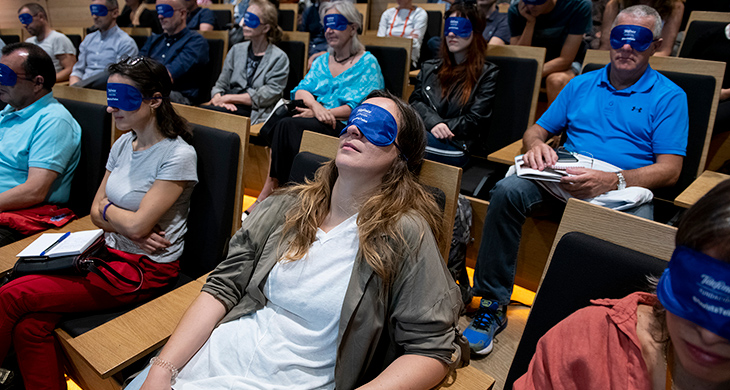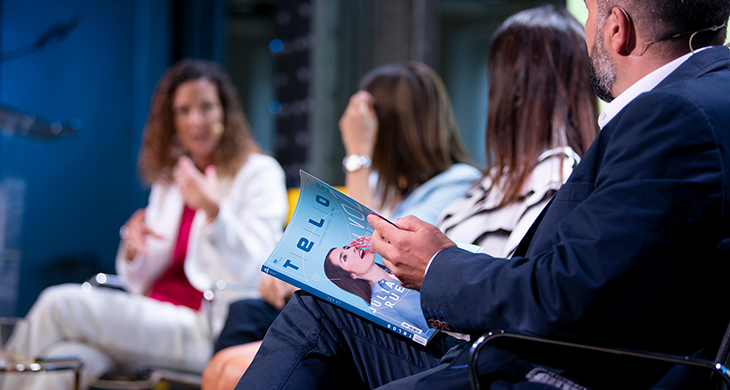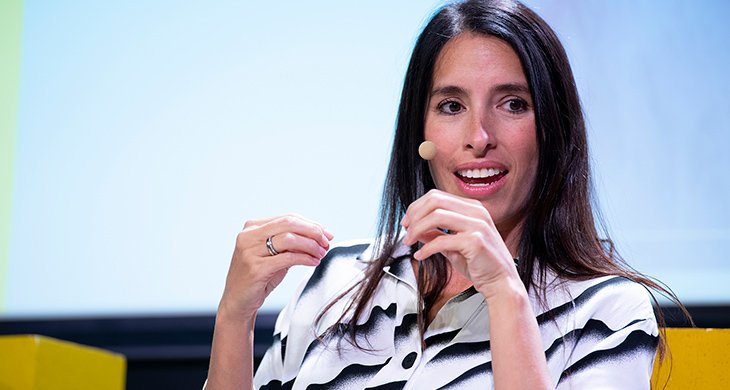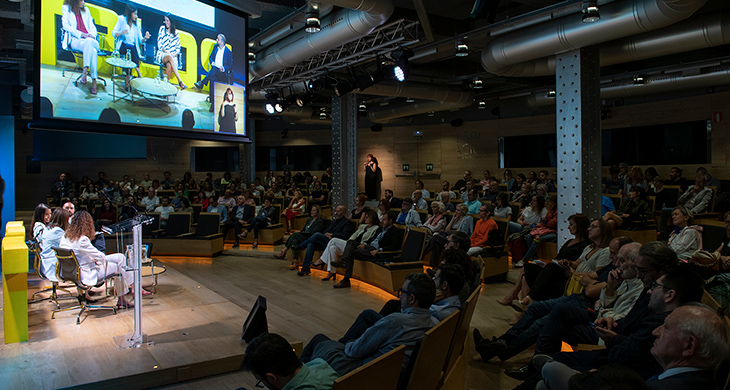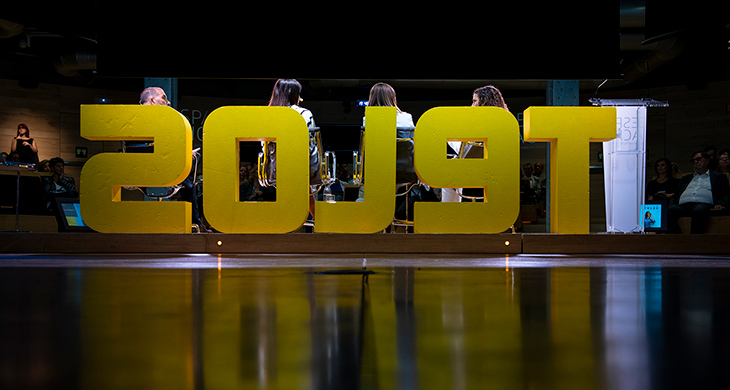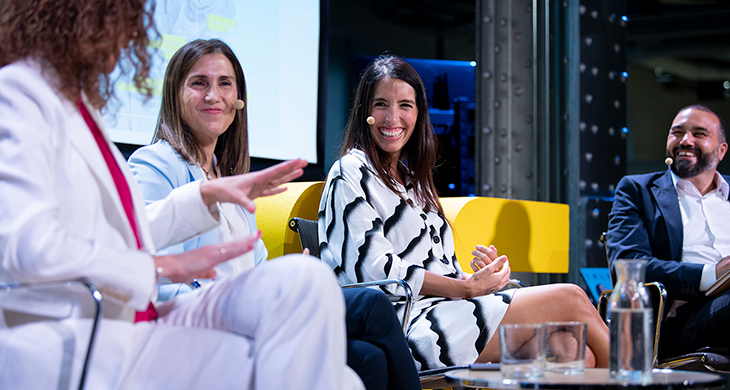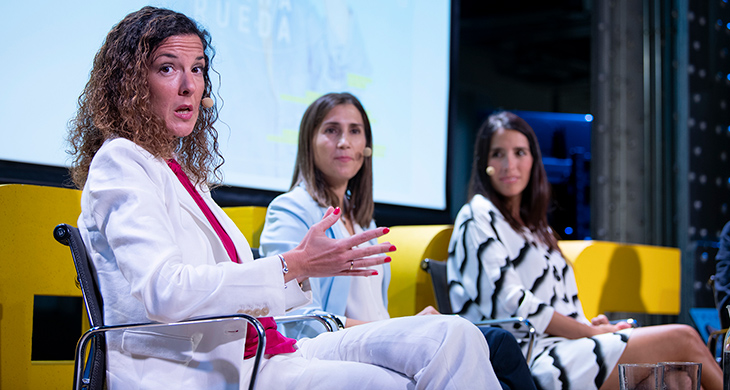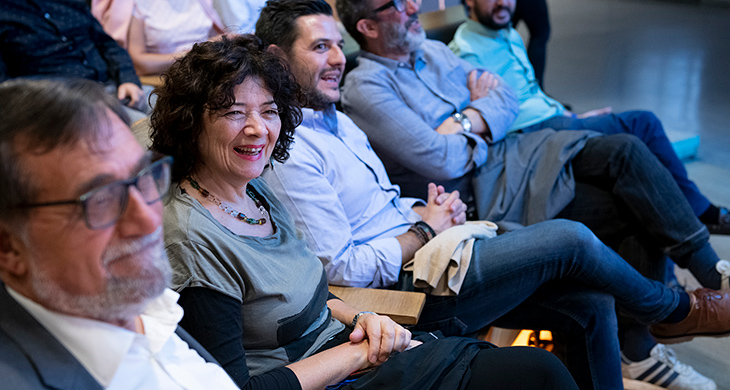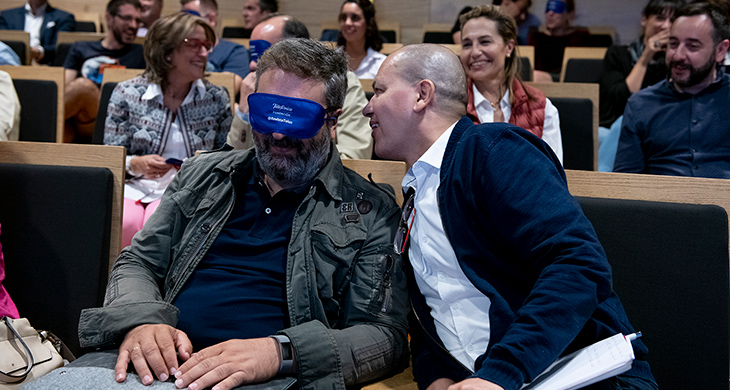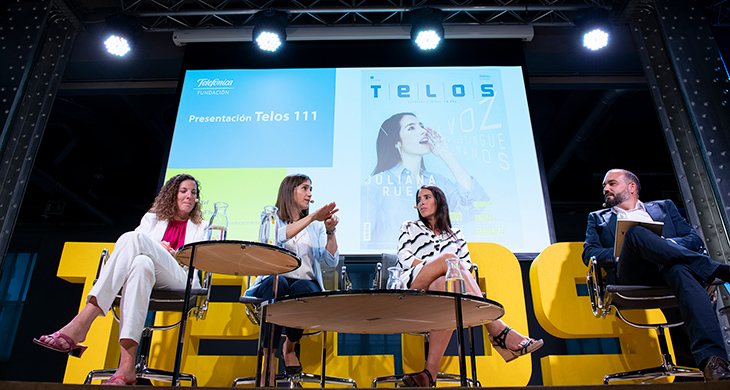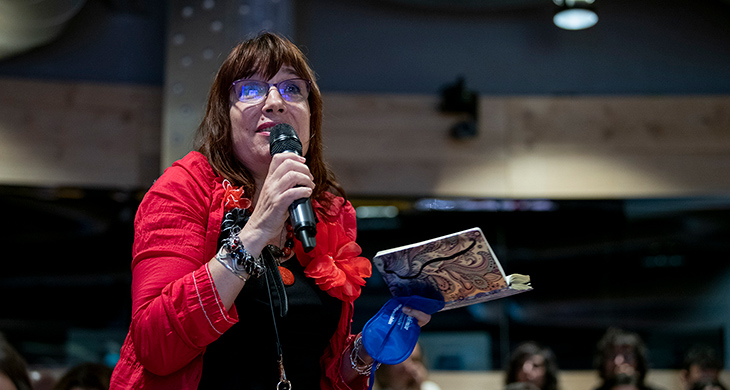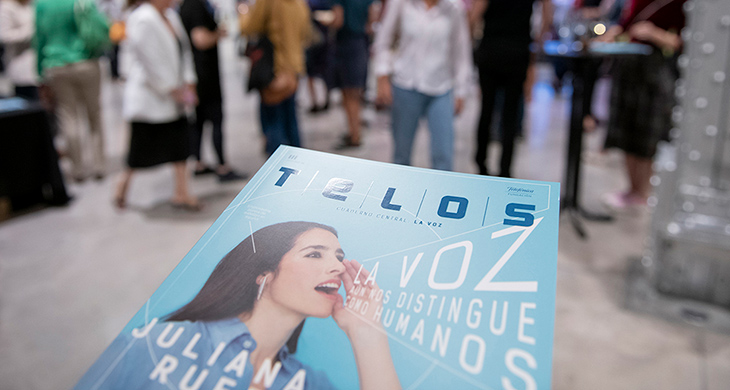11.09.2019
Telos 111. The voice distinguishes us as humans
The Telos Magazine is back with a new edition on the power of the voice and its extension to technology. Free download
Telos 111. The voice distinguishes us as humans

#Telos111
The spoken word is the heritage of all humans and its power extends to technology, machines and robots. The latest issue of the Telos Magazine covers precisely this, the importance of voice in an ever increasingly digital world. On September 11, we presented Telos 111 at a meeting in which we spoke to Julian Rueda, a sound engineer and producer of audiobooks, who was also on the cover of the issue.
The spoken word, the voice, is taking positions in a society where image seems to be the most important element. Oral expression has been the most used form of communication by man since the beginning of time, and today, at the start of a change governed by technology, the voice is recovering is opposition thanks to the different processing systems of natural language, artificial intelligence and the virtual assistants with voice, to mention a few examples.
‘Voice is bringing us closer. Humans are beginning to recover conversation’. With these words, Juan M. Zafra, director of the Telos Magazine and a lecturer in journalism at the Universidad Carlos III, introduces the presentation of the latest issue. He then begins a conversation with the participation of Juliana Rueda; Elena González-Blanco, Managing Director for Europe at CoverWallet; and Marta Pinillos, expert, mentor and voice and non-verbal communication coach. The event was interpreted into LSE (Spanish Sign Language) and could be followed via streaming online and on social media with the hashtag #Telos111.
Telos 111. The voice distinguishes us as humans
The relationship between voice and Artificial Intelligence is advancing in leaps and bounds, but there is still a long way to go. In the words of Elena González: ‘There is still a lot to do until the voices that we have listened to are generated by just a machine’. ‘Translating human feelings so that the algorithms and the machines can reproduce these in the voice is truly difficult. […] but with sufficient data and training, we can reach a degree of accuracy in the imitation of voices that is fairly high.’
Marta Pinillos spoke to us of the particularities of the voice, who had described it as ‘the impression of each person’s identity’. And who also stated that ‘A voice is irreplaceable; I doubt that emotion can be transmitted by a machine’. Pinillos is a voice and non-verbal communication coach and ended her contribution with a practical element involving the audience in which she revealed some of the keys of how it works: ‘Are you convincing when you speak? Do you train your voice? Do you know how many vocal cords we have? The voice is very important and it says a lot about each one of us.’
Telos 111. The voice distinguishes us as humans
Juliana Rueda tells us of her experience is an audiobook producer: ‘I found a magical connection between the written and spoken word’. Rueda defines her profession as an opportunity to ‘create rich universes through emotion’.
